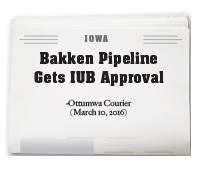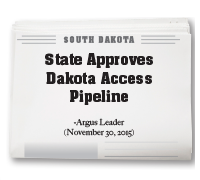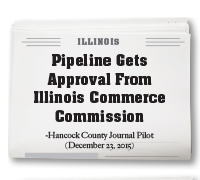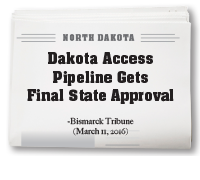Construction of the Dakota Access Pipeline is now well underway in Iowa following a greenlight by the Iowa Utilities Board (IUB) in June. As a result, more than 3,000 new jobs have now been created in communities across the Hawkeye State, including upwards of 450 Operators from Des Moines-based Local 234. Speaking with ABC affiliate WOI-TV earlier this summer, Local 234 Vice President Chad Carter praised the IUB for their decision, saying it would out many hard-working Iowans to work.
The pipeline, which represents a $1.04 billion capital investment in Iowa alone, is expected to generate almost $50 million in additional sales and income taxes during construction. In addition, local economies and small businesses along the four-state route are already benefiting from a surge in new customers that have come to work on the pipeline. Family-owned Scoopz Ice Cream & Eatery in Linton, ND is witnessing these benefits firsthand with record sales on over 46 gallons of ice cream a week. “We’ve just met a lot of really nice, wonderful people from all over the U.S. and it’s just made our first year a huge success and very fulfilling to be a new business owner,” says Cindy Zotti, Scoopz owner.
All that said, the project is still awaiting approval from the U.S. Army Corps of Engineers to cross a mere 3.5 percent of the entire route. Despite having almost 500 days to evaluate Dakota Access’s application, the Army Corps continues to drag their feet in a textbook display of Washington bureaucracy. It is time for the them to follow the lead of four state utility boards and approve this critical investment in our local economies and national energy future.




